The Revolution Begins in the Cookbook Store
Paige Lipari, founder of Archestratus, is changing the world one potluck at a time.
THIS ARTICLE IS ADAPTED FROM THE MARCH 9, 2024, EDITION OF GASTRO OBSCURA’S FAVORITE THINGS NEWSLETTER. YOU CAN SIGN UP HERE.
Six years ago, after I moved into a closet-less room approximately the length and width of a full-size bed in Greenpoint, Brooklyn, the first place I went was the bookstore. Not just any bookstore: Archestratus—named for the ancient Greek poet in Sicily who was one of the world’s earliest known food writers—which specializes in cookbooks and food literature.
Since Paige Lipari opened the store in 2015, it’s become a hub for enthusiastic home cooks, chefs, journalists, and other assorted food nerds. It’s hosted author Q&As, food writing classes, bake sales, cooking classes, dinners, and all sorts of other events.
Part of what makes Archestratus so special is that, in addition to new releases, there are stacks of vintage community cookbooks from around the country and century-old rare tomes. On the shelf labeled NO TOUCH ME, curious readers will find collector’s items like a 1930 edition of the My Better Homes and Gardens Cookbook and Pei Mei’s Chinese Cookbook from the 1970s.
For my work at Gastro Obscura, both the collection and the knowledgeable staff who oversee it have proven invaluable research tools. Whenever I’ve needed to find, say, terrifying midcentury American meat Jell-O recipes or the 1958 book Cooking with the Groundhog (yes, really), they’ve never let me down.
There’s also a small stash of well-chosen provisions—Sicilian olive oils, fancy tinned fish, sourdough breads, and guanciale. There’s really good spaghetti, because as Lipari tells me, “If you’re going to eat a bowl of pasta, it might as well be magic.”
There’s been a justifiable amount of hand-wringing over the last few decades about the demise of small independent bookstores. Back in 1950, Manhattan alone had 386 bookstores; less than a quarter of that number are around today.
It’s undeniably hard to keep any bookshop, let alone one with a niche audience, afloat with the looming specter of Amazon. I’ll never quite get over the loss of a few, such as the late, great Kitchen Witch in New Orleans.
But it’s not all doom. I take heart in the fact that a small number of bookstores dedicated to food writing are more than just surviving. The best of these are creating community spaces as much as they’re selling books. (I can’t wait for BEM Books & More, which focuses on “food literature of the African diaspora,” to open up in Bed-Stuy in the coming months.)
When I stop in to speak with Lipari, she is simultaneously working on getting the ceiling fixed after a torrential rainstorm the night before (thanks to quick-thinking and plastic covers, no books were harmed) and prepping for the cookbook potluck, featuring dishes from Vanessa Mota’s The Dominican Kitchen. “Just another Tuesday,” she says, unfazed.
I spoke to Lipari about why bookstores matter, the joys of church-sale scavenging, and the importance of time capsules.

Q&A With Paige Lipari, Founder of Archestratus
How did this all start?
It started because I always knew I wanted a bookstore. [I’m a] child of divorced parents, and I would be like, “Drop me at the bookstore,” all moody, every weekend. I also grew up hearing stories of my grandparents, who had what was called a latticini freschi, which means “fresh dairy.” It was called Lipari and Sons Latticini. They made ricotta and mozzarella fresh in Bushwick. They also had Sicilian imported groceries. They were very successful.
It skipped a generation. My father didn’t want to do it. He became a philosophy major and then a journalist. But I was always like, “Dad, tell me about the store.” He’d put me to bed at night and he would tell me a story. I would always want to hear about the store.
I met my family in Sicily when I was 19. I became obsessed with them. I fell in love with them. I just started collecting Sicilian cookbooks.
I was working in bookstores through college. I created sections for McNally Jackson that still exist. I’d always end up in poetry and music and cookbooks. Those were always my sections.
Then it just was like, “I write a lot of poetry. I see form. I see content.” The bookstore is a form and the content became food.
That’s why we have a travel section. That’s why we have a gender studies section, a philosophy section, because the store itself is the form of a general bookstore, but with food as the way of seeing the world.

I know the monthly cookbook potlucks are hugely popular here. What draws people and how do you pull those together?
The cookbook potlucks are a testament to allowing a certain amount of flow and ease and just letting shit happen. The beauty of it is that it’s very simple. You show up with food from the book or inspired by the book or maybe not inspired by the book, but something you like to make or something that you found on your way here because you didn’t have time to cook. It’s a very forgiving space.
Because there’s such a low barrier to entry and because it’s a very understanding environment, people come back. They don’t feel like they have to bring their A game every single time. The point of it is to just be together.
Food is something that brings people to the table. It’s about the conversations you’re having at the table and less about talking about the food. We love to talk about food, but it also is about everything else. I like that kind of unfussy, laid-back, very grounded space.
Your programming features such a wonderfully diverse range of speakers and subject matter. How do you plan all of that?
I tend to gravitate towards the things that I think people are really excited about. I get excited about people being excited whether or not it suits my subjective interest. I also love to bring in esoteric things and things that are a little bit more on the fringe.
I like people that are just really driven—not in the ambitious sense. [People who are] driven by something they can’t explain, something that they’re like, “I have to express this. I have to get this out of my system. I have to see this through. I have to really do this well.”
I feel like those are the Win Son guys. That’s Natasha [Pickowicz]. People also that are really passionate about their heritage. I love cookbooks that are about people really wanting to preserve their family recipes.
That’s like our cookbook-club book now: The Dominican Kitchen, where [Vanessa Mota] was just like, “I have to get this down. This is a document that I can pass down to my family for generations.” Little time capsules. That’s what cookbooks are.

Speaking of time capsules, I want to talk about the vintage cookbook section. Why did it feel necessary to have that here?
It’s always been important for me to have the older books with the newer. I could not imagine having only new books. That makes no sense to me whatsoever. Shelving them together feels correct, too. First of all, because it is historical and comprehensive, holistic, to have that kind of collection.
That’s always been one of the wild things about being someone that loves to go back. I love to go back and listen to lots of old music, or I love to go back and read recipes. So many of the trends that we’re seeing have been written about before. We just don’t think that.
Where do you find all of these older volumes?
I’m not a big drinker or a big drug user. The greatest high I get in my life is going to library sales and church sales and other book sales in the tristate area. I go picking, and I am wild. When I started out 10 or 12 years ago, it would be me and my dad. My nonna would come because we didn’t have anyone to watch her.
There’s a whole world of people finding and scanning books. There are people that have been doing this for 30, 40, 50 years. It’s a very interesting subculture.
Do you see some of the same faces?
Oh, I’ve seen some of the same faces for a decade. They know me, too. Like, I come and they’re like, “Oh no!” They know where I’m headed.
Why do you think a physical bookstore is important?
I was recently talking to a PR person for a book publisher. We were planning an event and she asked, “What do you think the reach is for this kind of event?”
It rang sort of like a horror film to me. It really felt like she was like, in one sentence, making book events obsolete. Because you come into a space and it’s 50 people at the most—70 people, 80 people at the absolute maximum.
It’s this concept of valuing reach versus permanent impressions that are made on the soul, the connections that are made when you are meeting and talking to another person.
Something really cool happens in a room with a Q&A. I mean, Q&As are often pretty dreadful, but when they’re good, something happens where people are almost in conversation and in chorus with one another.
And there’s a buzz at the end of an event where people who came in sort of nervous and maybe not knowing who any of these people were in the room with them, at the end, they’re talking to one another, they’re meeting each other, they’re making connections that are going to last far beyond the store.
Having a store is just the absolute beginning of the revolution. The revolution itself happens outside the store. If you have a physical space where people meet, it’s spawning all of these other webs that you just wouldn’t have ever known could have possibly existed unless you had a meeting space and a place to come. It’s life itself.
Other Cookbook Stores We Love

Joanne Hendricks Cookbooks, New York City
Tucked away in a 19th-century townhouse in Manhattan’s Greenwich Village, this store showcases the owner’s remarkable collection of rare, vintage, and out-of-print cookbooks. Joanne Hendricks has spent much of her life gathering this eclectic collection, making it a real treat to peruse. Read more.

Morris Press Cookbook Store, Kearney, Nebraska
Queer clowns, soap opera stars, church ladies, and everyone in between have penned titles that line these bookshelves. Morris Press has a history dating back to the 1930s and has amassed an incredible collection over the decades. Read more.

Bonnie Slotnick Cookbooks, New York City
Prowl through the vintage food art, teacups, and enameled tableware in pursuit of out-of-print cookbooks at the gem in Manhattan’s East Village. On spring afternoons, take your haul to the small patio oasis out back to read in the sunshine. Read more.

Books for Cooks, London
Located in the tony neighborhood of Notting Hill, this cheery bookstore is both great for browsing and one of the best lunch deals in town. Eric Treuille prepares lunch from one of the thousands of books Tuesday through Friday and serves it at inflation-defying prices. Read more.
Gastro Obscura covers the world’s most wondrous food and drink.
Sign up for our email, delivered twice a week.



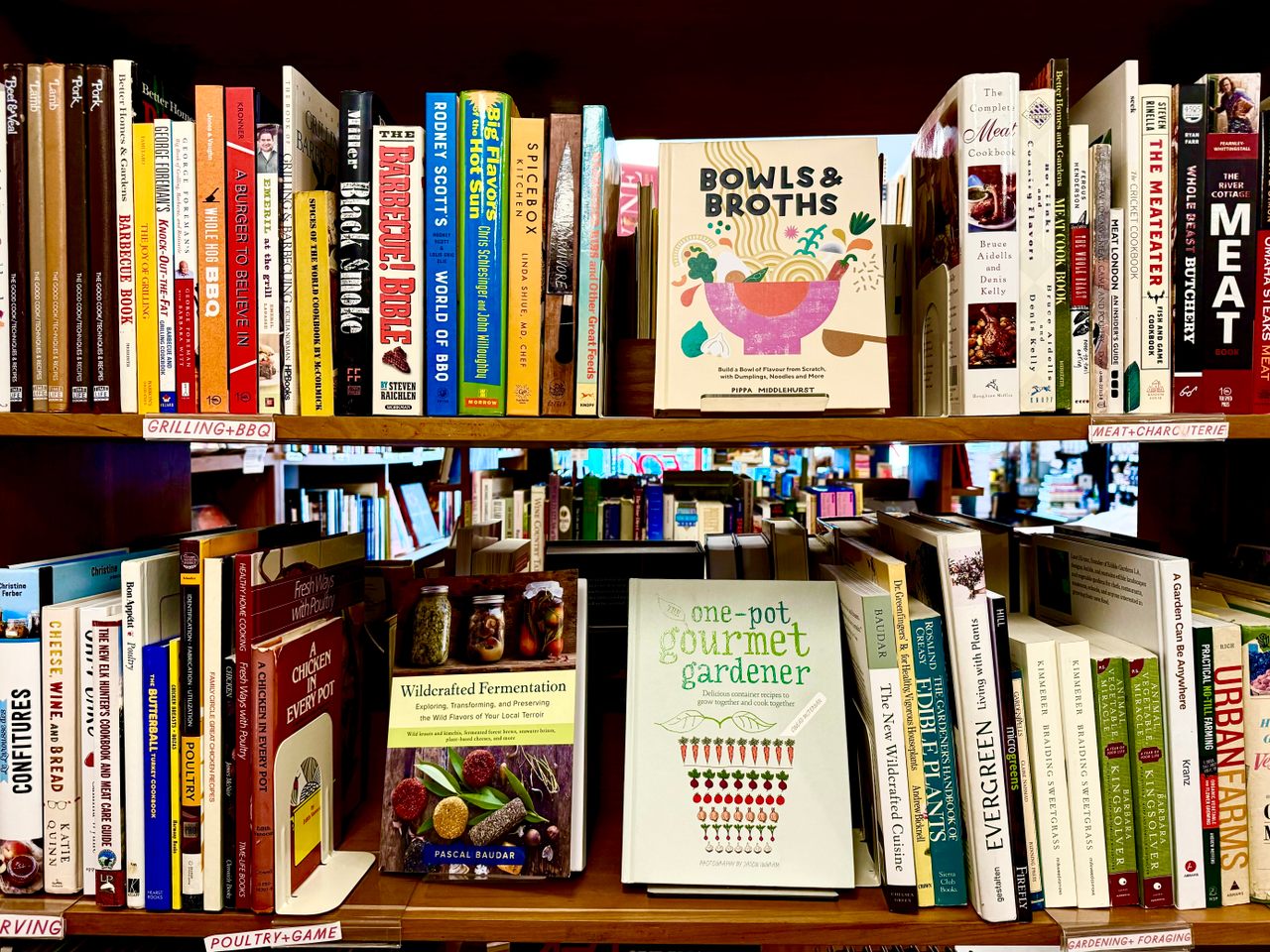


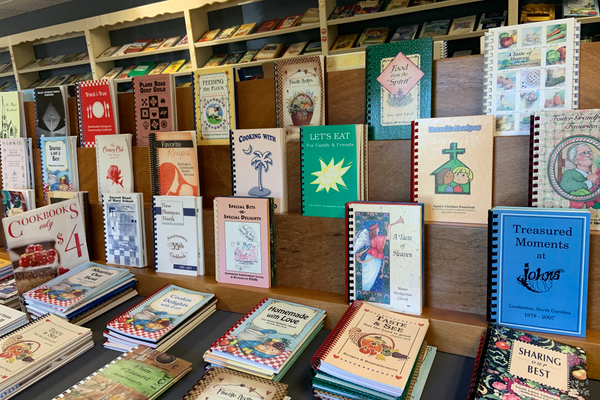




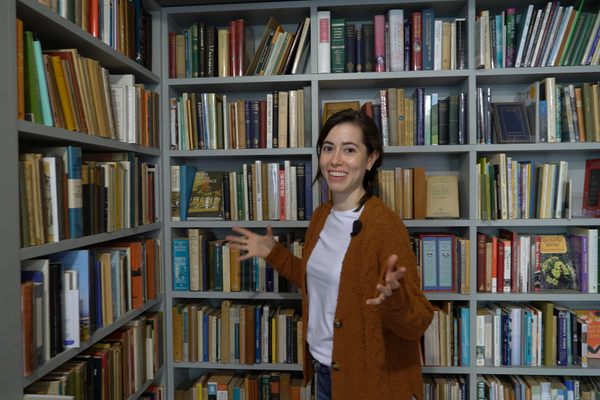




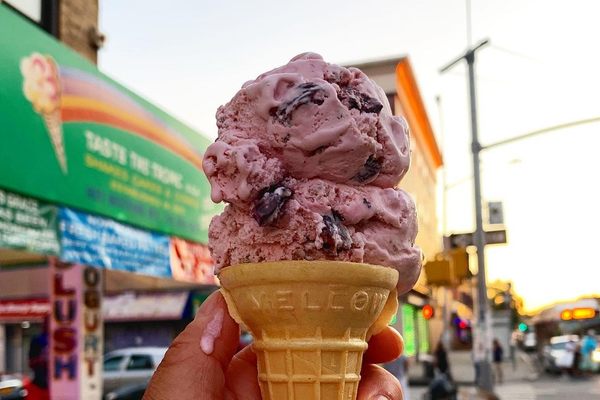


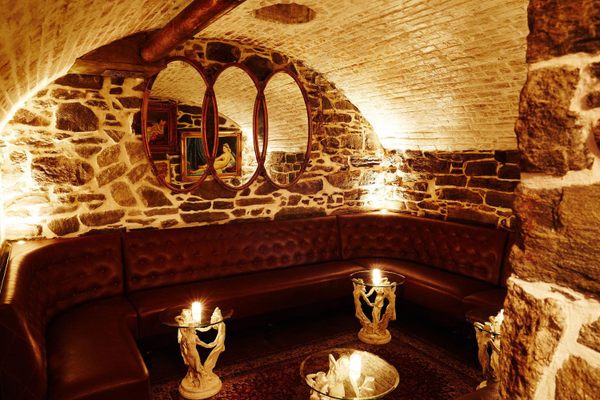




Follow us on Twitter to get the latest on the world's hidden wonders.
Like us on Facebook to get the latest on the world's hidden wonders.
Follow us on Twitter Like us on Facebook